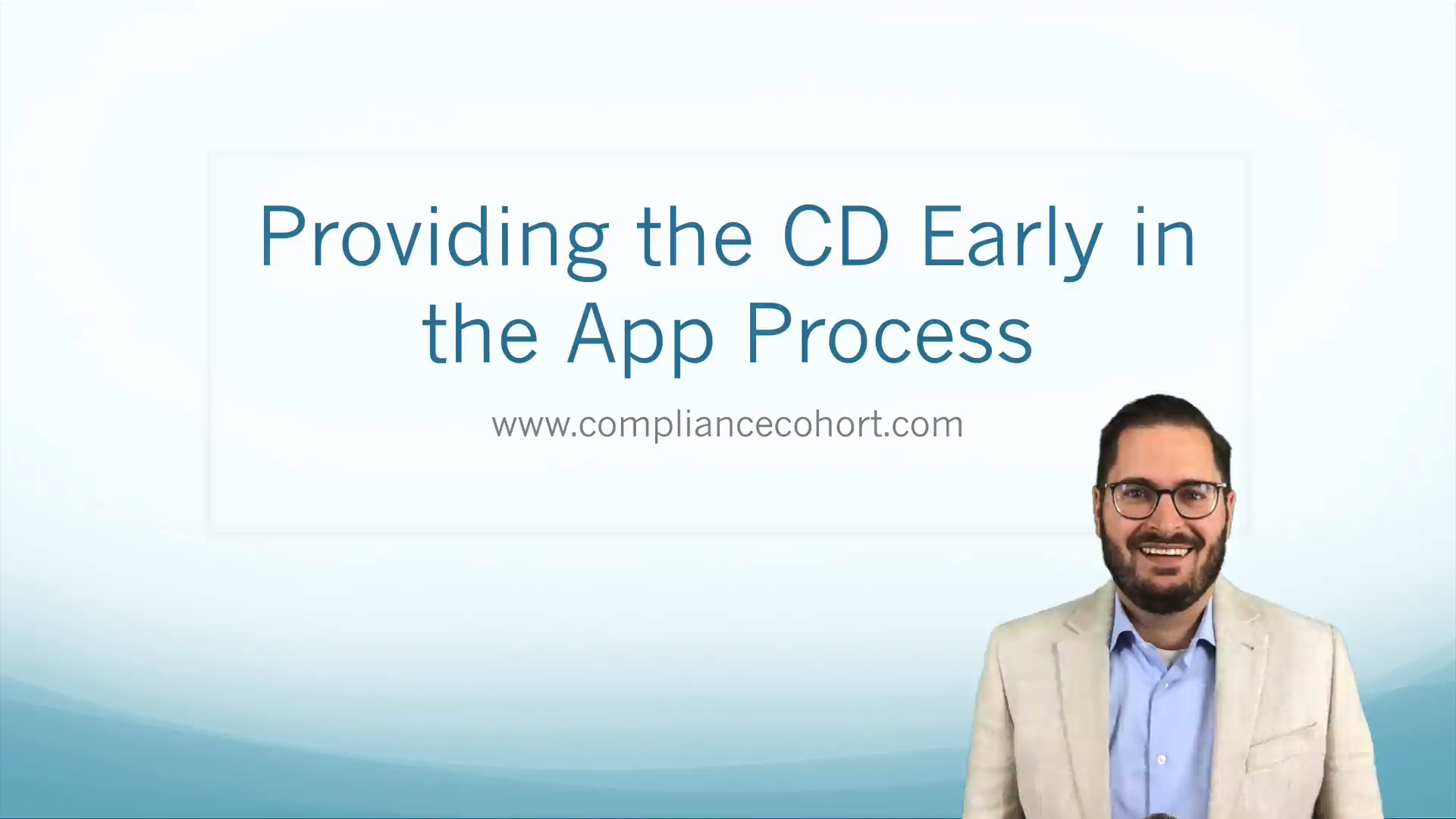VIDEO: Providing the Closing Disclosure Early in the Application Process
In this Compliance Clip (video), Adam answers a question about providing the closing disclosure early in the application process. In other words, is it possible to provide the CD pretty close after the LE just to get it out to the customer and check off a box?
Video Transcript
The following is a transcript of this video.
This Compliance Clip is going to talk about providing the Closing Disclosure early in the application process. This week, I saw a question and I answered it. It went sort of like this. It said, “Is it possible to give a Closing Disclosure early in the application process, even if we don't have all our final numbers, so we don't have to worry about delaying our closing?” That's our question. Can we get the Closing Disclosure early in the application process? The person that was asking this, in their defense to this question, was basically trying to find the citation. They said their lenders were doing this and the lenders thought it was okay, but they were looking for a citation in order to counter the lenders and say this isn't okay. Finding the citation was a little bit challenging for this person.
There is a citation on this that can help back up why we don't want to give the Closing Disclosure too early in the application process. That citation actually comes from the preamble to the 2018 final rule or the amendments to TRID that took place in May of 2018. There's been quite a few revisions over the years but this specific revision, these final rules in 2018, had to do with the “black hole”. Some of you remember the TRID “black hole” where it had to do with providing the Closing Disclosure so many days from the Loan Estimate and so many days before closing, they’ll remove the issue of the black hole. Well, this is where the preamble of that final rules talks about issuing the Closing Disclosures too really in the application process.
So let's take a look at some of the preamble and take a look at what it says, because it's pretty clear here that if you provide the Closing Disclosure too early in the application process, you could have some problems. Let's take a look at some of these quotes. The first thing we see in the preamble is this. It says, “The Bureau agrees with commenters who stated that the practice of providing very early Closing Disclosures with terms that are nearly certain to be revised would be contrary to the underlying purpose of the Closing Disclosure”, which of course is to provide final numbers. That's really the purpose of the Closing Disclosure. Now, the preamble goes on to say a few more things. It says this, “The Bureau concludes that the rule’s existing provisions should prevent creditors from sending Closing Disclosures very early in the process before engaging in due diligence.” Due diligence of course is to get final numbers. So really what it comes down to here is you can issue a Closing Disclosure once you feel you have final numbers. If you know that they're not final numbers, you should not be issuing a Closing Disclosure because you've not provided your due diligence to collect that information and get those final numbers on the Closing Disclosure.
The preamble goes on and expands on this a little bit more. It says, “The Bureau believes the existing Closing Disclosure accuracy standard already accomplishes that objective of preventing creditors from sending Closing Disclosures very early in the process before engaging in due diligence.” What are those existing accuracy standards? Well, of course there's a couple. Existing accuracy standards that are written into the TRID Rules, which we can find direct citations on, are these. It includes a number of things, really three main things: the standard of providing actual terms; the standard of providing readily available terms that you should be able to gather, even though you don't have them, you should be able to gather them; and conducting due diligence and obtaining the information, and not just saying we don't have it so I'm going to issue it. We actually have to conduct due diligence to get the information before you provide the Closing Disclosure. These three standards are the indirect citation on why we cannot provide a Closing Disclosure early in the application process if we've not yet done our due diligence to have final numbers. If you do have final numbers, you can provide it as soon as you know those numbers are final. And that, of course, is going to be your baseline for your tolerances. Really, you should not be providing them without conducting your due diligence and making sure that you have the actual terms and the readily available terms in your Closing Disclosure
I hope that answers the question. As you can see, it's not a good idea to provide it too early in the process. We need to make sure we’ve done our due diligence and are providing the consumer with those final numbers on the Closing Disclosure. That's it for this Compliance Clip.

